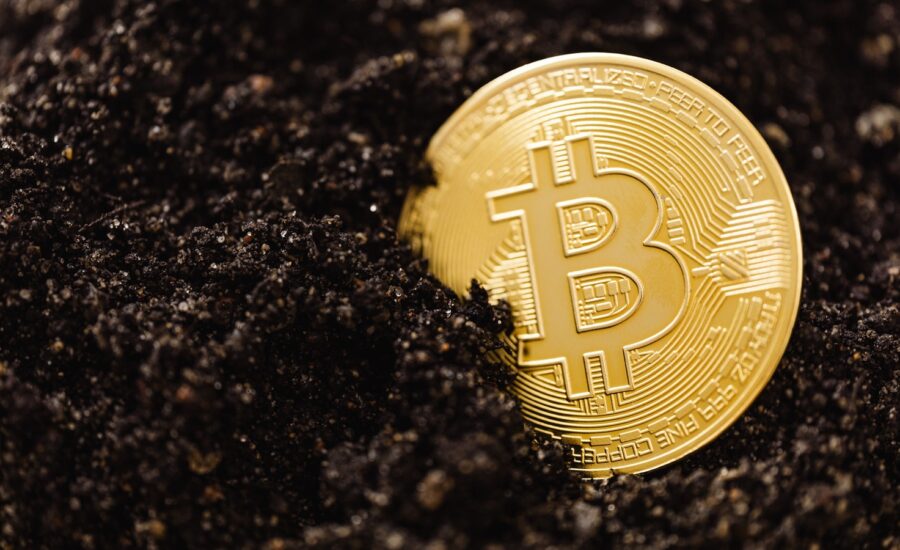Should you mine cryptocurrency?
Sponsored By
CoinSmart
Is it still profitable to mine bitcoin, ethereum and other digital coins? CoinSmart’s experts explain crypto mining—and why there’s power in numbers.
Advertisement
Sponsored By
CoinSmart
Is it still profitable to mine bitcoin, ethereum and other digital coins? CoinSmart’s experts explain crypto mining—and why there’s power in numbers.

I’ve been thinking about getting into crypto mining, but I’m not sure what’s involved. How do I get started, and can I still make a profit from mining bitcoin and ethereum?
–Jamie
Thanks for your question, Jamie. As the demand for cryptocurrencies has grown, more people have become curious about crypto mining—the process of generating new coins and verifying transactions on cryptocurrency blockchains.
Cryptocurrencies use different “consensus mechanisms” to process transactions and add new blocks to their blockchains. Bitcoin and ethereum, the two largest crypto coins, both use the proof-of-work (PoW) protocol. This involves competing against other miners around the world to solve challenging cryptographic puzzles using your computer. In the early days of crypto, it was relatively easy to complete these puzzles and get rewards—today, not so much.
That brings us to another interesting factor: crypto code includes a metric called “difficulty,” which indicates how hard and time-consuming it will be to solve a puzzle. To stabilize the pace of mining new blocks, the difficulty increases or decreases depending on the collective “hash rate” of participating miners.
The hash rate describes the overall computational power of a decentralized network like bitcoin’s. The higher the hash rate, the greater the computational power and security of the overall network. The difficulty and hash rate work in tandem to ensure that new bitcoin blocks are consistently mined every 10 minutes.
Why does the difficulty metric exist? Simply put, when Satoshi Nakamoto was designing bitcoin, he or they (it’s not clear if Nakamoto is a person or a group) wanted the mining process to be as wasteful and expensive as possible to reduce network spam. However, because of this design choice, the difficulty of mining bitcoin and ethereum is so high right now that it’s infeasible for individual miners to succeed. You’re up against sophisticated crypto mining farms with warehouses full of specially designed computers (application-specific integrated circuits, or ASICs).
If you’re still keen on mining these coins, consider joining a mining pool. A pool is basically a bunch of miners joining their hashing powers together to increase their odds of mining successfully. You’ll need to buy ASICs and get the right software to participate.
To decide if bitcoin mining is worth the cost, let’s look at the stats. As per BitInfoCharts, bitcoin miners can make around US$0.1732 per day with processing power of 1 terahash per second (THash/s). Do the math and see how much profit you might make, considering all the hardware needed plus electricity bills. A single ASIC costs a few thousand dollars. (CryptoCompare has a handy calculator for power costs.) If you’re not planning to join a mining pool and/or electricity is expensive where you live, it may not make sense for you to start mining.
Now, let’s talk about ethereum. You could start mining ETH if you have the proper hardware, but it will likely be a short-lived effort—the world’s second-largest crypto coin is changing protocols from PoW to proof-of-stake (PoS) soon. When this happens, the mining process will become wholly virtual, and your personal hash rate will depend on how much ETH you have locked up (or staked) within the system rather than the quality of hardware you own.
You could try mining smaller cryptocurrencies, such as dogecoin, bitcoin cash and litecoin. Again, do your research: find out each coin’s price history, reward per block and difficulty, and weigh this info against the costs of hardware and electricity. For many coins, the return on investment may not be worth the time and effort of mining them yourself.
So, should you start mining bitcoin or another cryptocurrency? If you’re tech-savvy and mainly curious about how it all works, crypto mining could be an interesting project, and some newer coins have the potential to grow in value. But keep your expectations realistic, and weigh the costs and potential benefits carefully before investing your hard-earned cash—your new mining hardware may never yield a profit.
CoinSmart is a Canadian cryptocurrency trading platform. Sign up for an account* with the code money30 and receive CAD$30 in bitcoin when you deposit a minimum of CAD$100.
This is a paid post that is informative but also may feature a client’s product or service. These posts are written, edited and produced by MoneySense with assigned freelancers.
Affiliate (monetized) links can sometimes result in a payment to MoneySense (owned by Ratehub Inc.), which helps our website stay free to our users. If a link has an asterisk (*) or is labelled as “Featured,” it is an affiliate link. If a link is labelled as “Sponsored,” it is a paid placement, which may or may not have an affiliate link. Our editorial content will never be influenced by these links. We are committed to looking at all available products in the market. Where a product ranks in our article, and whether or not it’s included in the first place, is never driven by compensation. For more details, read our MoneySense Monetization policy.
Share this article Share on Facebook Share on Twitter Share on Linkedin Share on Reddit Share on Email